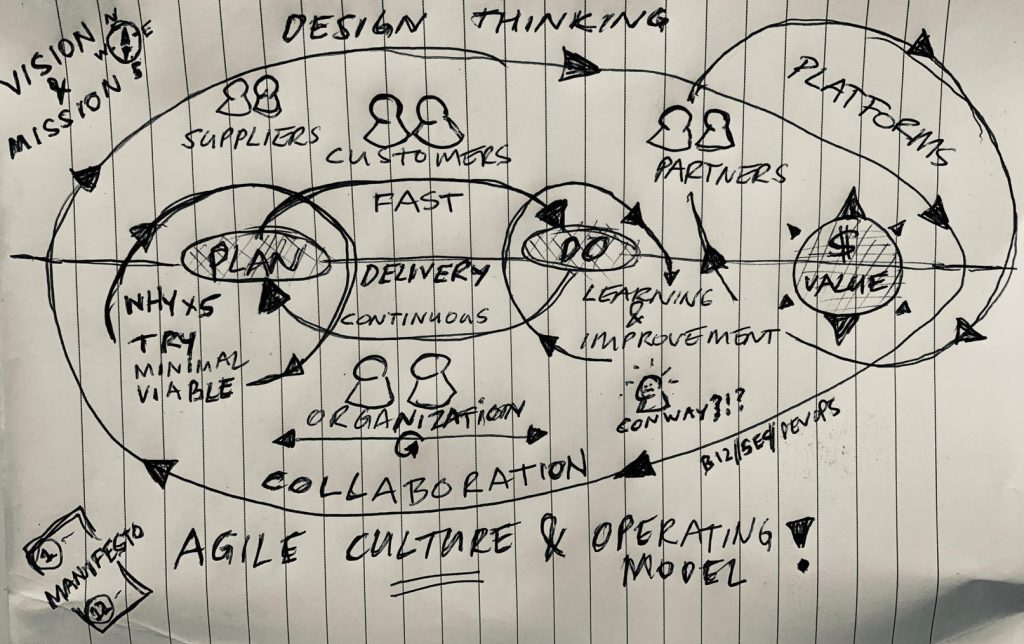
Recipe for Success


BizDevOps is the next “Digital” evolution following DevOps and Agile software development practises. Aimed at including business stakeholders as part of autonomous cross-functional software delivery teams.
It is a practice that emphasizes the ownership, collaboration and communication of both business stakeholders, software developers and other IT professionals. While automating the process of software delivery and infrastructure changes. It aims at establishing a culture and environment where building, testing, and releasing software, can happen rapidly, frequently, and more reliably.
BizDevOps is often combined with Lean Six Sigma, Design Thinking and Service Design methodologies.
Platform thinking is best described as a technology driven business strategy.
In construction, a platform is something that lifts you up and on which others can stand.
The same is true in business: By building digital platforms, other businesses can easily connect their business with yours, creating an ecosystem, build products and services on top of it, and co-create value. This ability to “plug-and-play” is a defining characteristic of Platform Thinking.
From a technology perspective, successful platforms:
From a business perspective, the success of a platform strategy is determined by three factors:
Examples of business models rooted in platform thinking are Uber, Amazon, AirBnB, eBay, Bol.com and Social Media.
Article